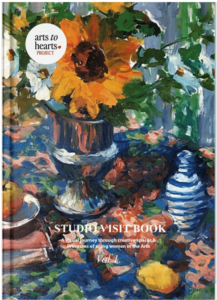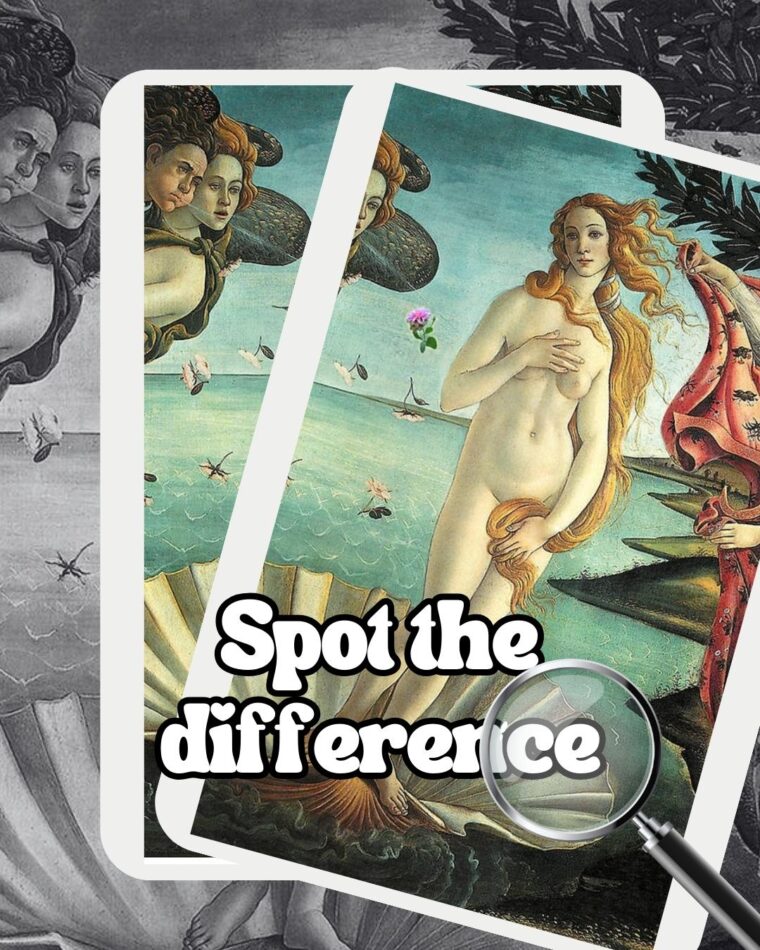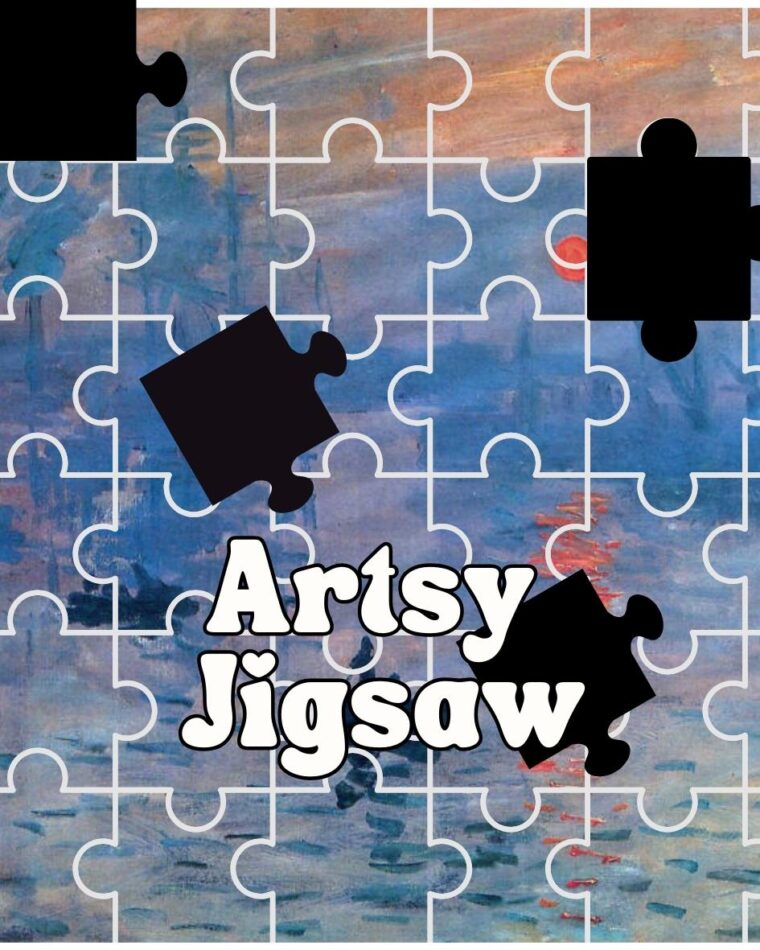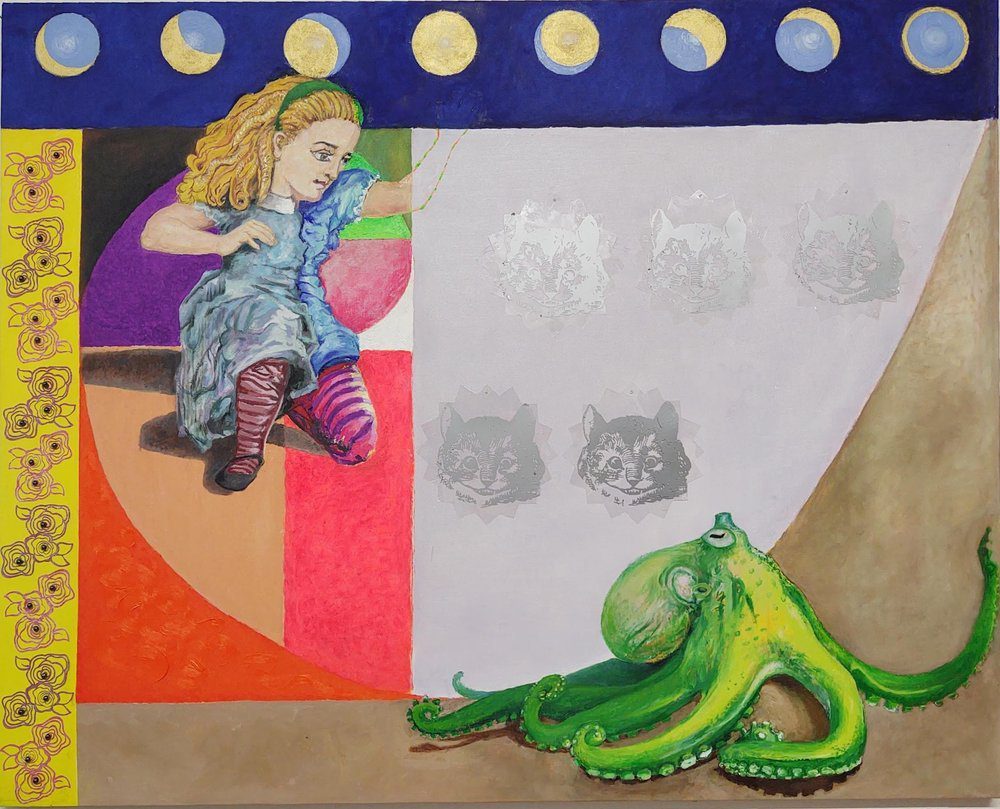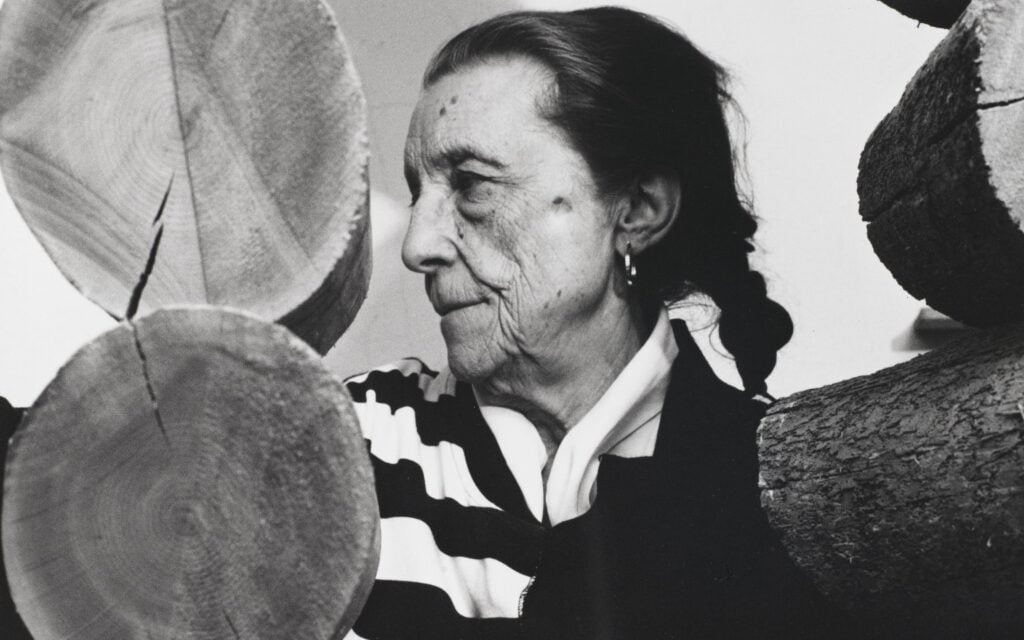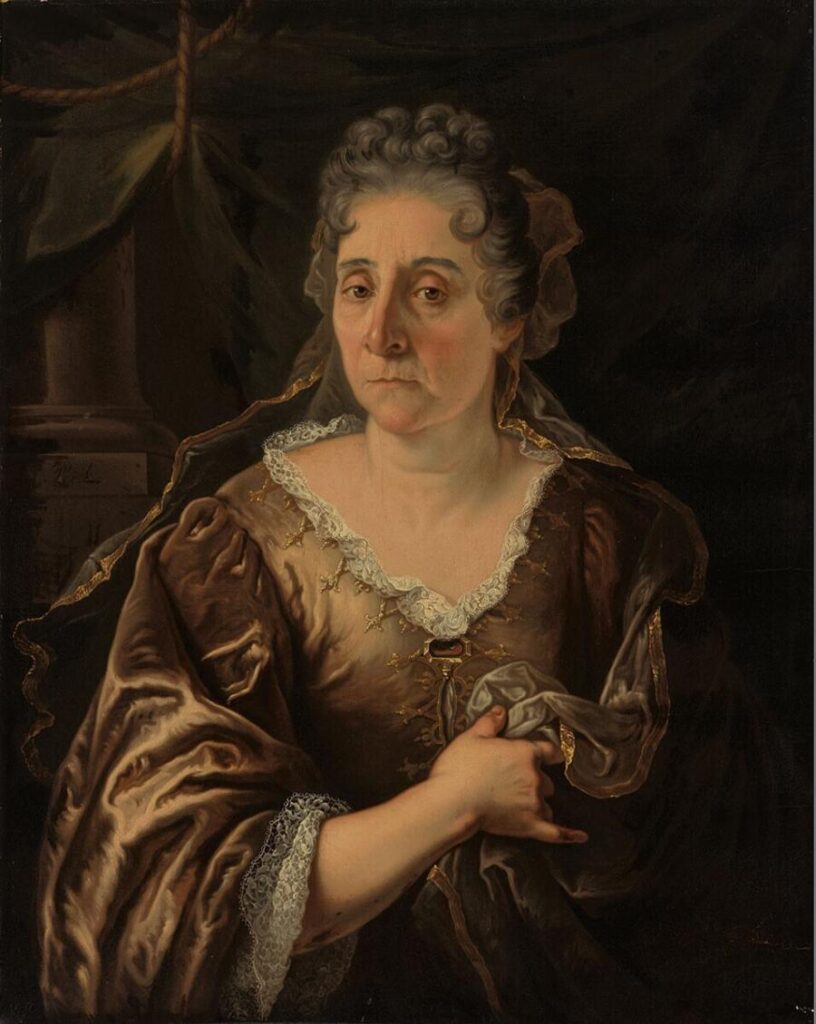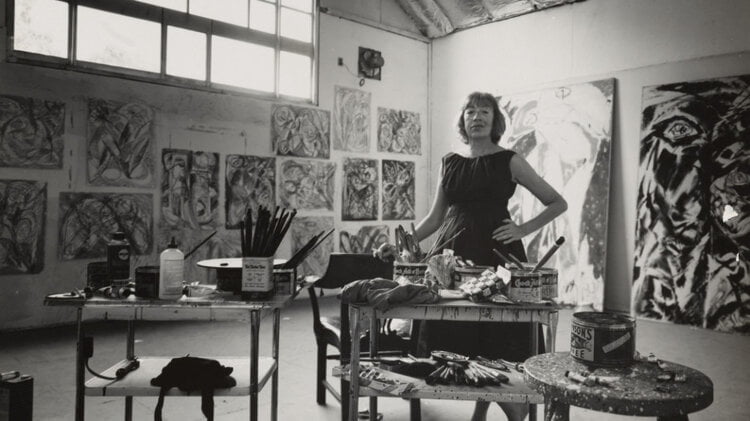
Leonora Carrington: A Feminist Artist Who Showed Freedom Through Her Art
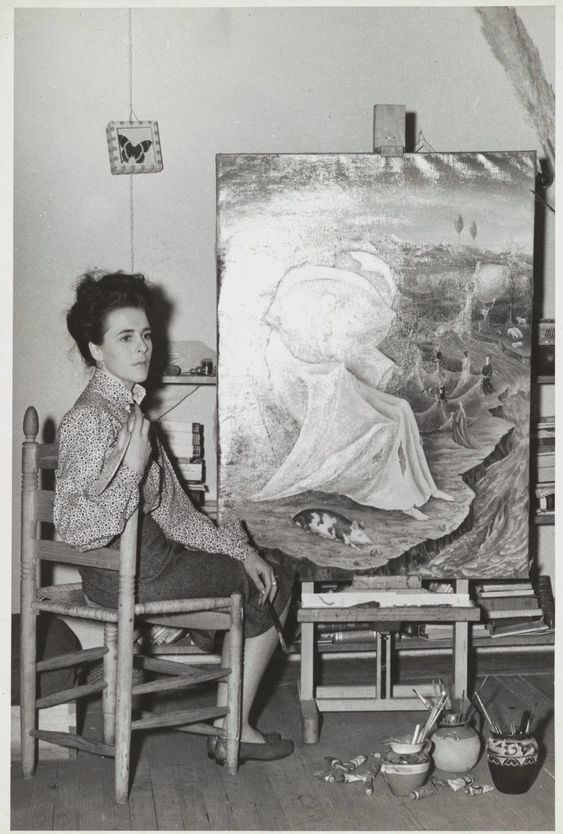

Hello, art lovers! Welcome back to the ‘Women From The Past Series’ of the Arts to Hearts Project, a tribute to the fascinating careers of women artists in the past. Our goal is to inspire everyone by pointing out that if these remarkable women could create and succeed despite having few resources and facing many challenges, then so can we.
And this week, we’ll be highlighting Leonora Carrington’s amazing life. She was a groundbreaking artist whose daring and adventurous works questioned convention and pushed the limits of the art world.
Continue reading to learn more about her extraordinary paintings, her writing, and her influence on other artists. We will also learn about the lessons she learned from her journey
So sit back, read on and get to know the amazing Leonora Carrington!
Carrington was a British artist who lived in Mexico. She was a Surrealist artist, which means she liked to paint and write about strange and dreamlike things. She was also a feminist who believed in equality for women. Carrington was a pioneering feminist artist who broke down barriers and paved the way for other women artists. Her work often showed women in strong and independent roles.
A Surrealist Artist’s Journey
Leonora Carrington was a British-born Mexican artist who lived from 1917 to 2011. She was a key figure in the Surrealist movement, and her work is known for its dreamlike imagery, exploration of magic and mythology, and feminist themes.

Early Life
Carrington was born into a wealthy family in Lancashire, England. She showed an early interest in art and literature, and she studied at the Slade School of Fine Art in London.
Surrealist Movement
In the 1930s, Carrington moved to Paris, where she became involved in the Surrealist movement. She met and befriended many of the leading Surrealist artists, including Salvador Dali, Max Ernst, and Andre Breton.
Carrington’s work was influenced by the Surrealists’ interest in the unconscious mind and dream imagery. Her paintings often featured fantastical creatures, such as unicorns, mermaids, and sphinxes. She also frequently depicted women in powerful and independent roles.
Escape to Mexico
When World War II erupted, Leonora Carrington made a daring decision to flee from Europe and seek refuge in Mexico. This decision would shape the course of her life and artistic journey.
Mexico offered Carrington not just a new home but also a vibrant community of artists and writers who shared her creative spirit. Here, she found the freedom to express herself fully and embrace her unique artistic style.
Later Life
Carrington continued to paint and write in Mexico until her death in 2011. She was a true original who left a lasting legacy on the art world. Carrington’s artwork continues to captivate and inspire, resonating with audiences across generations. She was also a pioneer in the field of women’s art, and she helped to break down barriers for female artists.
Carrington’s work continues to inspire and challenge us today. She was a unique and powerful artist who used her work to explore the human condition in all its complexity. She was a true feminist icon, and her work continues to be an inspiration to women around the world.
Artistic Style and Influence
Leonora Carrington was a Surrealist artist who used her art to explore the subconscious, fantasy, and the female experience. Her paintings are full of symbolism and mythology, and she often depicted women as powerful and independent beings. Carrington’s work was influential on both the Surrealist and feminist movements, and she continues to inspire artists today.
Here are some of the key aspects of Carrington’s artistic style:
Symbolism and mythology: Carrington’s paintings are full of symbols and mythological references. She often drew inspiration from her own dreams and experiences, as well as from ancient tales and folklore.
Magical realism and fantasy: Carrington’s paintings often blend reality with fantasy. She created fantastical creatures and worlds, and her work often had a dreamlike quality.
Feminine perspective and identity: Carrington was a feminist artist, and her work often explored the female experience. She often depicted women as powerful and independent beings, challenging traditional gender roles.
Artistic Influence
Carrington’s work was influential on both the Surrealist and feminist movements. She was a member of the Surrealist movement in the 1930s, and her work was often exhibited alongside the work of other Surrealist artists such as Salvador Dali and Max Ernst. Carrington’s work was also influential on the feminist movement, and she is often cited as an inspiration by feminist artists such as Judy Chicago and Frida Kahlo.
Carrington’s work continues to inspire artists today. Her unique style and perspective make her a fascinating and important figure in the history of art.
Aspects of her artwork
Leonora Carrington’s paintings and artwork are truly fascinating. She creates imaginative worlds filled with magical creatures like unicorns, mermaids, and sphinxes, bringing a sense of wonder to her stories.
Carrington often portrays women as strong and independent characters, challenging society’s expectations and celebrating their power. Inspired by her dreams and personal experiences, her art explores themes of magic and surrealism. It also reflects her own struggles with mental illness and trauma, making it deeply personal and relatable.
Following are some of the most famous artworks and paintings by Leonora Carrington.
Self-Portrait (Magical Tales)
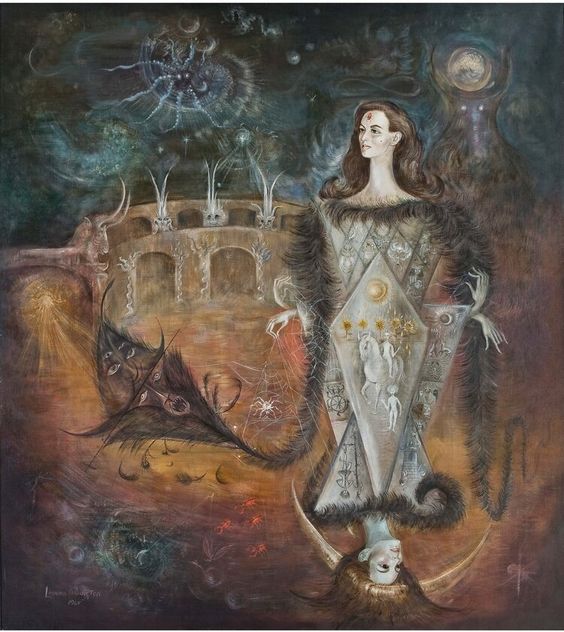
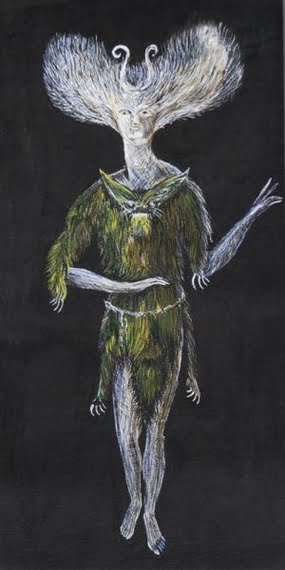
In this painting, Carrington painted herself as a sorceress. She is sitting in a chair with flowing hair and intense eyes. She is surrounded by strange and fantastical creatures, including a winged horse, a unicorn, and a hyena. The painting is a visual representation of Carrington’s own inner world, which was filled with magic and mystery.
The painting is full of symbolism. Horses represent freedom and liberty for Carrington. Hyenas represent wildness and curiosity.
Self-Portrait (Inn of the Dawn Horse) is a powerful and evocative painting that captures the essence of Leonora Carrington’s unique and creative vision.
The Giantess (The Guardian of the Egg)
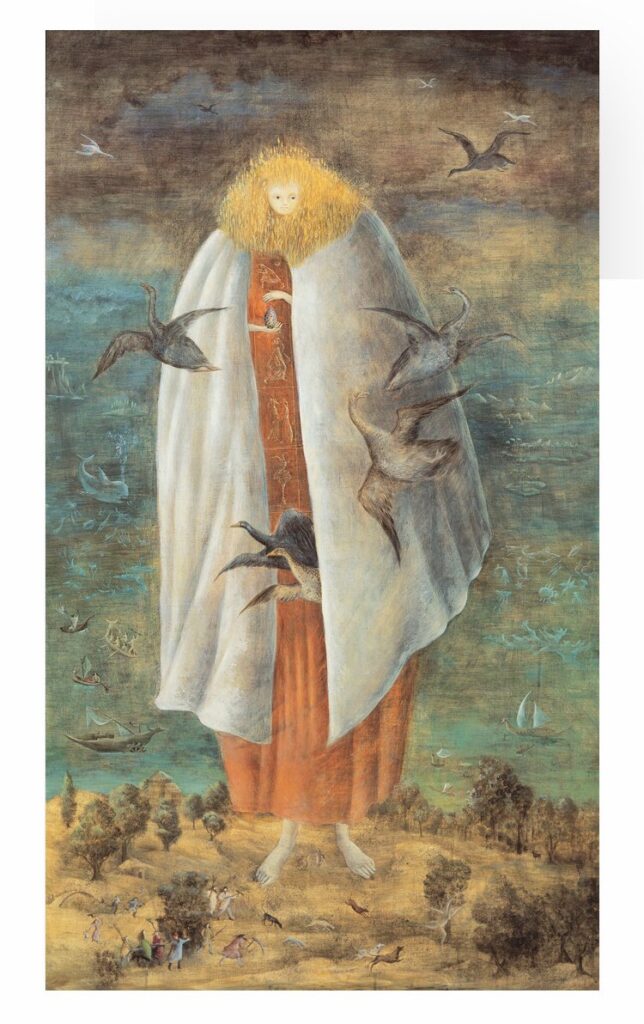
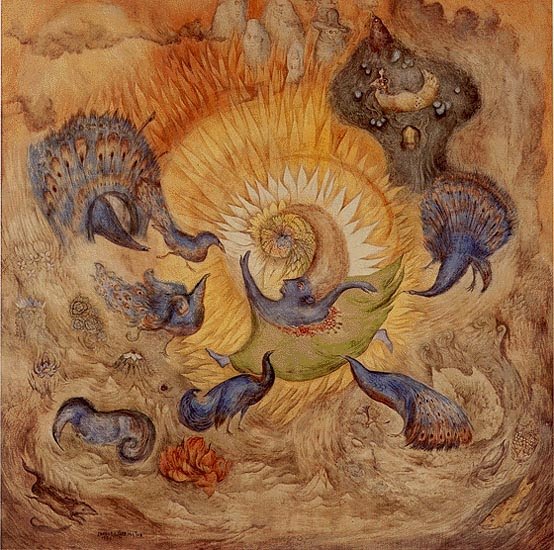
In this painting, Leonora Carrington painted a giantess standing on a rock, holding an egg in her small hands. The giantess is a powerful and protective figure, and the egg represents the potential for new life. The painting celebrates the female body and the power of women.
The giantess is surrounded by a flock of geese. The geese are symbols of freedom and new beginnings. The landscape in the background is a lush and fertile field. There are also small people on land.
The painting is a powerful image of the power of women. It is a celebration of the potential for new life and the hope for a better future.
The House Opposite
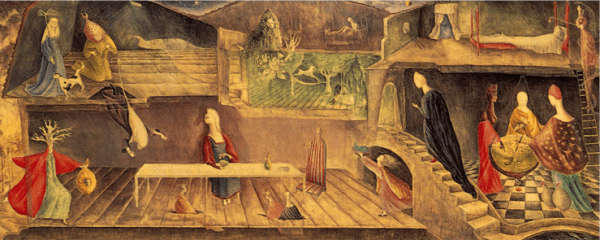
Leonora Carrington painted a house with many rooms. The rooms are full of strange creatures. These creatures have animal heads, bird bodies, and other fantastical features.
The painting has many symbols. Women are working together to make a feast. The painting shows how women can be strong and independent, even when they are working in the kitchen.
The painting celebrates the power of women. The creatures in the painting are all female, and they are strong and independent. They are not victims, but instead, they are in control of their own lives.
The House Opposite is a strong and meaningful painting that celebrates the power of women.
Portrait Of Max Ernest
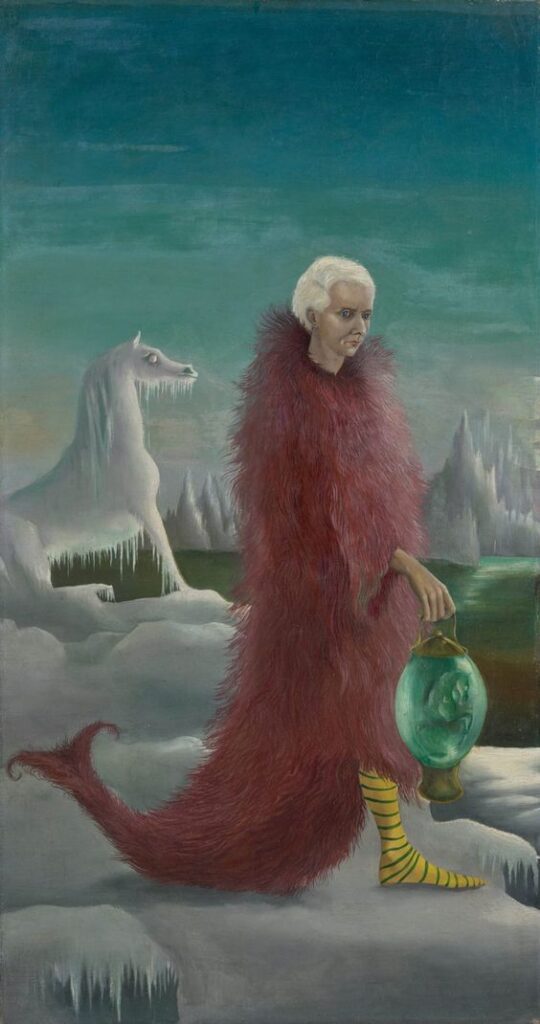
Leonora Carrington painted a picture of her lover, Max Ernst, walking in a frozen landscape. Ernst is dressed in a strange red coat with a merman-like tail, and he is carrying a lantern with a small horse inside. Behind him is a frozen horse, which may represent Carrington herself. The painting is full of symbolism, and it has been interpreted as a representation of Carrington’s feelings about her relationship with Ernst.
The painting is a powerful and evocative image of love, loss, and the power of the imagination. It is a reminder that even in the darkest of times, there is always hope for renewal.
The Kitchen Garden and Green Tea
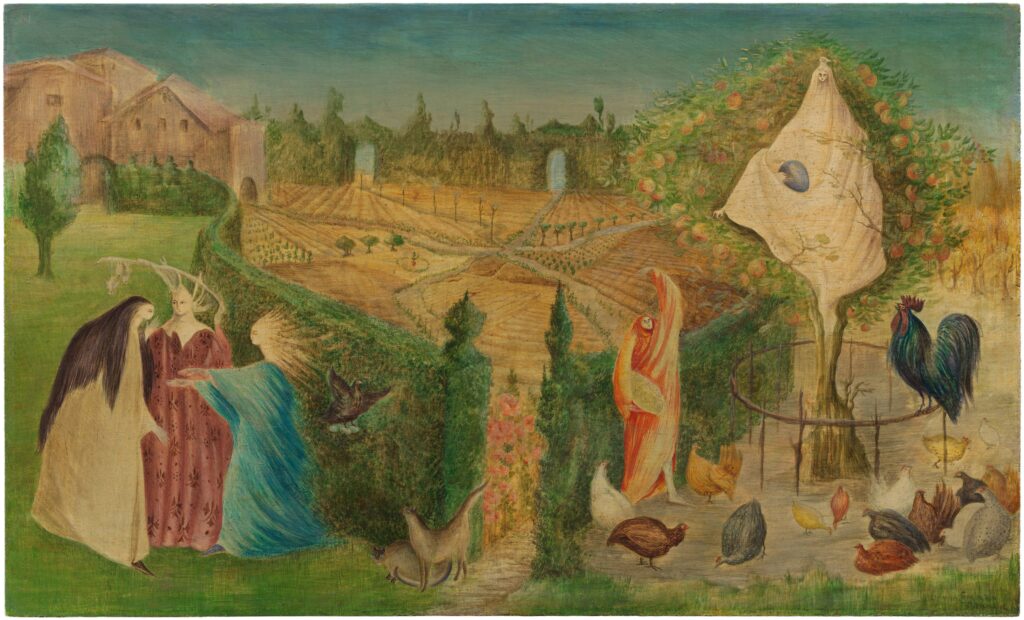
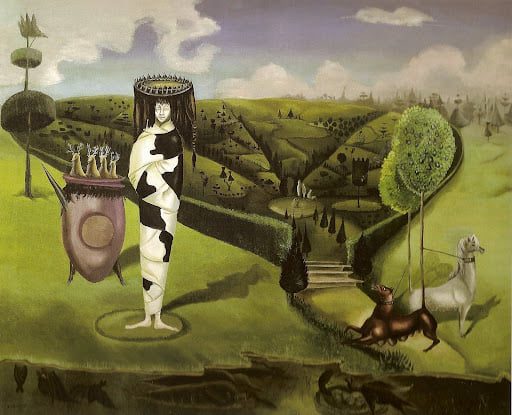
Leonora Carrington painted a picture of a magical garden. The garden is full of strange creatures, like a white phantom in a tree, a horned figure in red robes, and several chickens and a rooster. The garden is also full of symbols, like the egg held by the white figure, which represents fertility and new beginnings.
The painting is a celebration of the imagination and the power of nature. It is a reminder that there is more to life than what we can see with our eyes. There is a whole world of magic and possibility waiting to be explored.
Legacy and Influence: Leonora Carrington’s Impact on the Art World
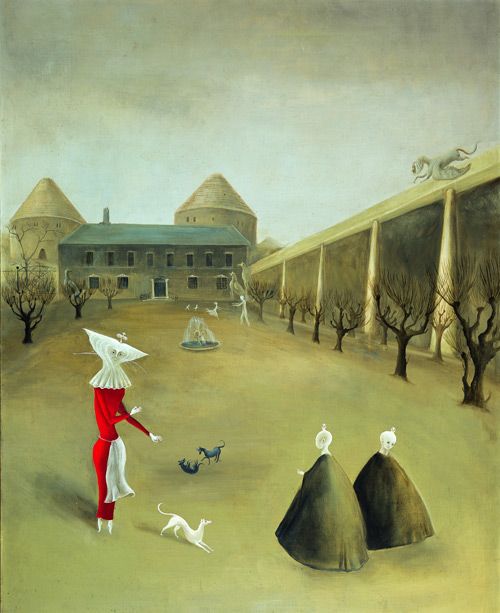

Leonora Carrington’s impact on the art world is truly remarkable and continues to resonate. As one of the most influential Surrealist artists of the 20th century, her work is celebrated worldwide, showcased in renowned museums, and extensively discussed in books and articles.
Carrington’s artistic contributions have gone beyond boundaries, inspiring generations of artists who look up to her as role model, especially women artists.
Her journey teaches us valuable lessons about resilience, following our instincts, embracing our uniqueness, and the strength found in supportive communities. Carrington’s story stands as proof of art’s transformative power and the pursuit of our dreams.
Carrington’s Impact on Today’s Women
Leonora Carrington was an amazing and one-of-a-kind artist whose influence still inspires the art world today. Her paintings and writings show her incredible creativity and imagination.
Carrington’s impact goes beyond borders, inspiring artists and becoming a role model, especially for women artists. Her journey teaches us important lessons about never giving up, trusting ourselves, being true to who we are, and finding strength in supportive communities.
If you want to discover more about other incredible artists from the past, be sure to visit our website! There’s a world of wonderful art waiting for you to explore.
The images are sourced from:

